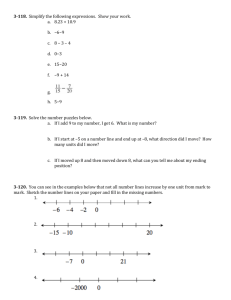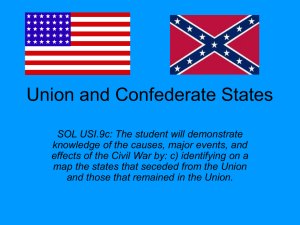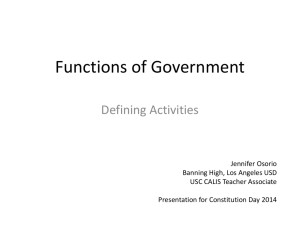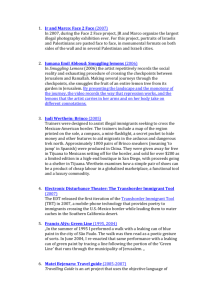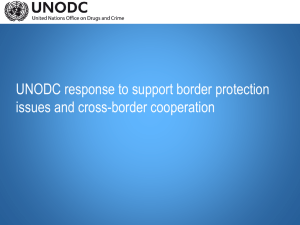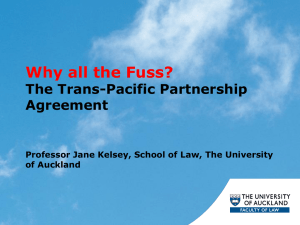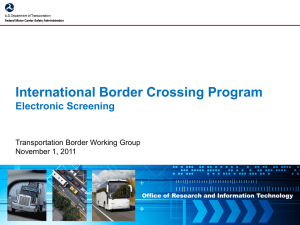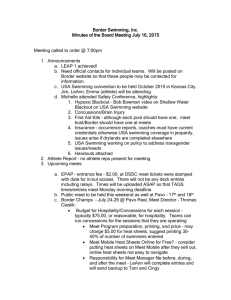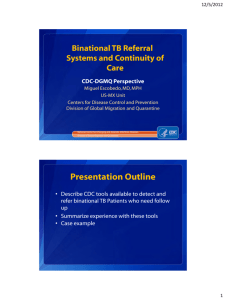American civil war still divides the country culturally and economically
advertisement
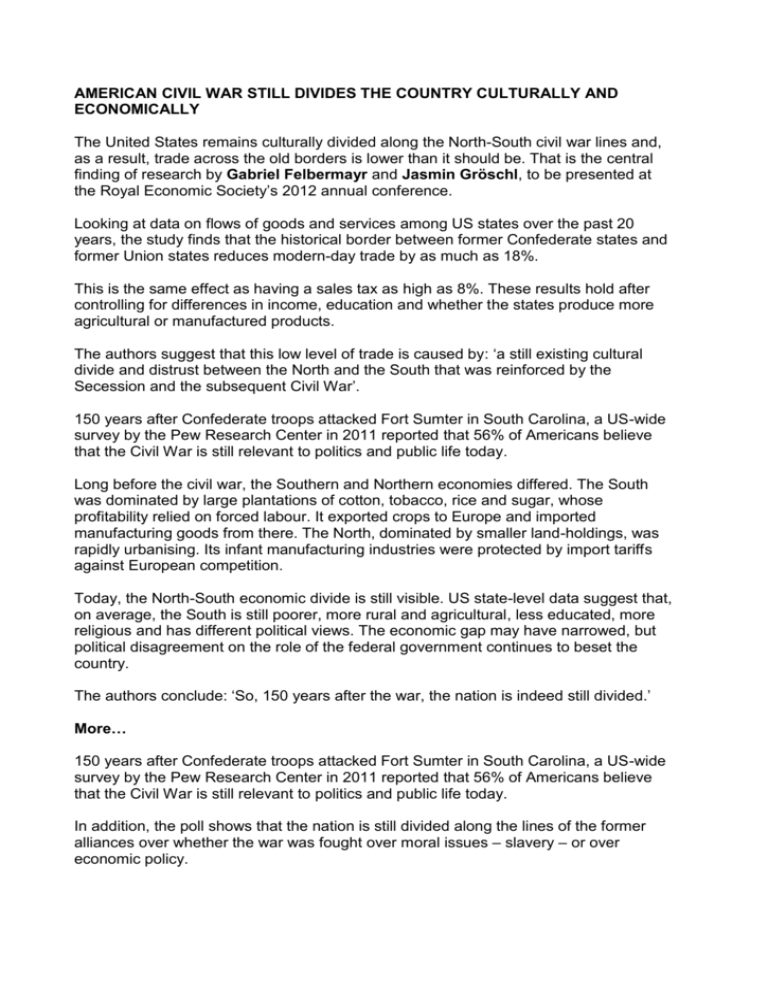
AMERICAN CIVIL WAR STILL DIVIDES THE COUNTRY CULTURALLY AND ECONOMICALLY The United States remains culturally divided along the North-South civil war lines and, as a result, trade across the old borders is lower than it should be. That is the central finding of research by Gabriel Felbermayr and Jasmin Gröschl, to be presented at the Royal Economic Society’s 2012 annual conference. Looking at data on flows of goods and services among US states over the past 20 years, the study finds that the historical border between former Confederate states and former Union states reduces modern-day trade by as much as 18%. This is the same effect as having a sales tax as high as 8%. These results hold after controlling for differences in income, education and whether the states produce more agricultural or manufactured products. The authors suggest that this low level of trade is caused by: ‘a still existing cultural divide and distrust between the North and the South that was reinforced by the Secession and the subsequent Civil War’. 150 years after Confederate troops attacked Fort Sumter in South Carolina, a US-wide survey by the Pew Research Center in 2011 reported that 56% of Americans believe that the Civil War is still relevant to politics and public life today. Long before the civil war, the Southern and Northern economies differed. The South was dominated by large plantations of cotton, tobacco, rice and sugar, whose profitability relied on forced labour. It exported crops to Europe and imported manufacturing goods from there. The North, dominated by smaller land-holdings, was rapidly urbanising. Its infant manufacturing industries were protected by import tariffs against European competition. Today, the North-South economic divide is still visible. US state-level data suggest that, on average, the South is still poorer, more rural and agricultural, less educated, more religious and has different political views. The economic gap may have narrowed, but political disagreement on the role of the federal government continues to beset the country. The authors conclude: ‘So, 150 years after the war, the nation is indeed still divided.’ More… 150 years after Confederate troops attacked Fort Sumter in South Carolina, a US-wide survey by the Pew Research Center in 2011 reported that 56% of Americans believe that the Civil War is still relevant to politics and public life today. In addition, the poll shows that the nation is still divided along the lines of the former alliances over whether the war was fought over moral issues – slavery – or over economic policy. This study asks: 150 years after the Secession, how integrated is the US economy today? Is there a truly single market, or do border effects between the two former foes hamper economic exchange still today? Long before the war, the Southern and Northern economies differed. The South was dominated by large plantations of cotton, tobacco, rice and sugar, whose profitability relied on forced labour. It exported crops to Europe and imported manufacturing goods from there. The North, dominated by smaller land-holdings, was rapidly urbanising. Its infant manufacturing industries were protected by import tariffs against European competition. Today, the North-South divide is still visible. US state-level data suggest that, on average, the South is still poorer, more rural and agricultural, less educated, more religious and has different political views. The economic gap may have narrowed, but political disagreement on the role of the federal government continues to beset the country. Carefully controlling for observable contemporaneous and historical differences between North and South, the study finds that the long defunct border between the North and the South is still relevant and still divisive for economic relations between US states today. It particularly hampers transactions between states in highly differentiated industries, which indicates the potential role for cultural factors and trust. The former border, which essentially captures whether two states were on opposing sides of the Civil War, still constitutes a discontinuity in the economic geography of the United States. This study estimates the trade-inhibiting force of the long defunct border between the North and the South with the help of a gravity model. The researchers use US statelevel trade data on different waves of the Commodity Flow Survey (1993, 1997, 2002 and 2007). The results show that the historical border reduces today’s trade between former Confederate and Union states by 7-18% on average. This equals an ad valorem tariff equivalent of 2-8%. Several channels might relate to the persistent trade-inhibiting effect. While the border is likely to be related to endowment differences between Northern and Southern states in cropland, or in the size and structure of agricultural production, the emergence of the border may relate to historical ethnic patterns, historical educational achievements of the population, or institutional differences. Most importantly, it may result from the incidence of slavery. Controlling for all these determinants, the study still finds lower trade between Northern and Southern states. Interestingly, the trade-impeding effect of the former border relates to the degree of product differentiation. It is stronger in the food, manufacturing and chemicals sectors than in mining, which is characterised by a completely standardised good, or machinery, where the pattern of specialisation across the North and the South is very strong. This suggests that historical events have shaped cultural determinants of trade that still matter today. Hence, the former border relates to a still existing cultural divide and distrust between the North and the South that were reinforced by the Secession and the subsequent Civil War. So, 150 years after the war, the nation is indeed still divided. ENDS Contact: Jasmin Gröschl Ifo Institute – Leibniz Institute for Economic Research at the University of Munich International Trade Poschingerstr. 5, 81679 Munich, Germany +49 (0)89 9224 1317 +49 (0)176 20388374 Email: groeschl@ifo.de
